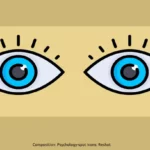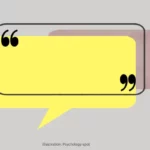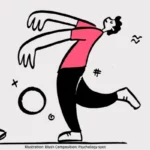
Self-help is not a recent genre. It has existed for millennia. Its most distant precursor can be traced back to Ancient Egypt, where there was a genre called “Sebayt”, which literally means teachings or instructions. These texts did not follow a specific literary style, but they had a common purpose: to instruct by transmitting certain ethical and civic teachings that reflected the way of living the truth.
The “Maxims of Ptahhotep”, for example, written between 2375 and 2350 BC, is a collection of moral proverbs that take the form of advice and instructions from a father to his son. Those ancient Egyptian texts offered meditations, aphorisms and maxims that guided people on the best way to live.
Much time has passed since then, but the interest in this type of content has not decreased, quite the contrary. Currently, almost half of Amazon’s best sellers are psychology or self-help books. Among the best-selling psychology books are some that are already considered classics of the genre, such as “The power of now“, “The man in search of meaning” or “The monk who sold his Ferrari“.
What problems can be addressed with self-help?
Self-help is aimed at activating our healing resources. It gives us guidelines to understand and deal with certain problems or achieve certain goals, either through guide books, support groups or other resources developed by professionals, but which do not involve their direct participation.
Although it has often been reviled, self-help can actually be a very useful tool to deal with some everyday difficulties, such as excessive worry, stress, fear of public speaking or anxiety. However, it is important to turn to legitimate, scientific and evidence-based sources.
The universe of self-help is very broad, so it also includes inspiring books, but they don’t provide practical resources to solve problems, so they can end up generating more frustration. There are also contents that can be iatrogenic, so you have to be selective when reading.
However, self-help resources based on validated therapeutic methods have been shown to be quite effective. A study conducted at the University of Alabama, for example, looked at recorded and written self-help products that had been specially designed to address everything from bad habits, fears, depression to enhancing the development of certain skills and concluded that resorting to self-help it is better than no treatment at all and in some cases it can even be an alternative effective as psychotherapy.
Even its results can be long lasting. Another research found that progresses made with cognitively oriented self-help resources lasted at least three years for people with depression. That means that they have generated an important inner transformation to avoid relapses.
In fact, good self-help books can not only help us understand the origin of our problem, but also provide us with practical tools to deal with these difficulties, from cognitive restructuring methods to relaxation techniques.
Obviously, self-help books are not magic. Their usefulness largely depends on how we read them. We must get involved and carry out a reflective reading. It is not enough to take note. We need to restructure its content, adjust it to our reality and, of course, follow its recommendations. The best structured self-help book in the world will be ineffective if we are not willing to apply its teachings or follow its method.
When to go to psychotherapy?
Sometimes self-help books are not enough and it is essential to have the support of a psychologist. There are particularly complex situations and/or psychological disorders that must be addressed directly by a professional. These are some of the main signs that indicate that it is necessary to go to psychological therapy:
1. The disorder is serious
Psychiatric disorders, such as schizophrenia, involve a loss of contact with reality and a decrease in critical capacity, which is why they require personalized treatment and in some cases it is even necessary to resort to medication. Other serious psychological disorders, such as major depression, generalized anxiety, or agoraphobia, should also be addressed with psychotherapy.
2. The problem has been established for years
If it is a long-standing conflict or a disorder that has been established for years, it is difficult to solve it by appealing only to self-help and own resources. In those cases there are usually negative thought patterns, irrational beliefs, bad habits or even limiting personal circumstances that feed the problem but it is difficult to detect them without the expert eye of a psychologist.
3. Emotions are out of control
When we feel overwhelmed by the situation, it is convenient to go to psychological therapy. It’s also a good idea to ask for help if you’re experiencing very strong emotions that affect your well-being, such as anger, rage, resentment, or guilt. Emotional aridity is another cause for alarm. If we experience great apathy or a feeling of despair or emptiness, it is vital to seek support since these states can lead to suicidal ideas.
4. Willpower is not enough
Willpower and discipline are essential to face psychological problems. But, many times willpower proves to be unsuccessful in the face of the unconscious impulses that dominate our behavior. In other words, when you repeat to yourself ‘I’m not going to do it anymore’, but instead you are subjected to repeat it, without any opportunity for control. In these cases, it is convenient to avoid the slogan of a self-help book: ‘Wanting is power’ and assuming a more realistic position that favors treatment.
5. Feel the need to talk
Talking about problems is often beneficial. Expressing what we feel or think not only has a cathartic effect, but often also allows us to discover new perspectives or solutions, particularly when our interlocutor is a psychologist. For this reason, asking for psychological guidance on issues that concern us, whether it is parenting or a couple conflict, can save us problems and headaches in the future.
To conclude, it is important to bear in mind that self-help and psychological therapy are not two antagonistic options. A study on the prescription of self-help material indicated that almost 90% of therapists find it useful. Between 60 and 88% of psychotherapists have recommended one of these books to their clients and almost 50% admit to doing so often. However, if something worries or affects us and we believe that we will not be able to deal with it alone, better we ask for help.
Sources:
Smith, N. M., Floyd, M. R., Scogin, F., & Jamison, C. S. (1997). Three-year follow-up of bibliotherapy for depression. Journal of Consulting and Clinical Psychology; 65(2): 324–327.
Scogin, F. Bynum, J. Stevens, G. & Calhoon, S. (1990) Efficacy of self-administered treatment program: Meta-analytic review. Professional Psychology: Research and Practice; 21(1): 42-47.
Starker, S. (1988) Do-it-yourself therapy: The prescription of self-help books by psychologists. Psychotherapy: Theory, Research, Practice, Training; 25(1): 142–146.



